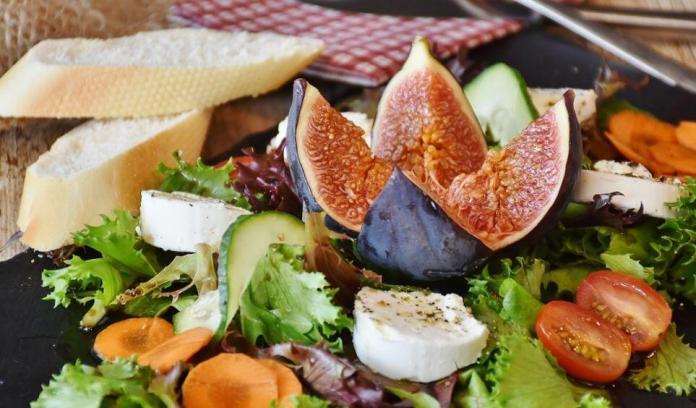Are you a new mom? Congratulations! Sending you tons of good wishes. Recently you have welcomed your child, and life is all merry. But there are things that keep bugging you, right?
We know how difficult it can be to cope with the changes. You were not even aware of some of these sudden changes. But here you are, reading this article to guide you.
Changes After Pregnancy
You may have thought that after you gave birth, everything would go back to normal overnight, with the only exception that you have a child to care for. Little did you know how difficult it would be with your weak body.
Postpartum depression is common in most women. It is a mix of different emotional, behavioural and physical changes that a woman undergoes after giving birth. And it can be stressful.
It happens because of the chemical changes in your body after the delivery as there is a rapid drop in the levels of hormones like oestrogen and progesterone. Anxiety, lower libido, fatigue, and depression are some of the symptoms.
Your skin and hair are also a mess this time. Pimples, itchiness, hair fall accompanies you while you are already feeling dusted. Not to forget the abdominal pain.
Abdominal pain is common after delivery as your uterus shrinks back to its normal size. When this happens, it causes some lower abdominal cramps (afterpains) that are similar to menstrual cramps.
Healthy Food You Should Eat During Postpartum
The first 6 weeks after delivery is known as postpartum. Your body goes through major psychological and chemical changes during this time, and you might feel like going through an emotional rollercoaster. If you feel like you need some help, you have come to the right place!
Although it can be a challenging ride, certain healthy foods can help you get through this.
Here are 5 healthy foods to eat after pregnancy:
Eat Food Rich In Iron
Losing blood is normal during delivery. But you need to gain it back soon after. Iron is essential for the generation of haemoglobin in the body. If your body has a low haemoglobin level, you might not be able to get back to your daily routine because of fatigue.
Iron is also vital if you are breastfeeding, as your baby will get the nutrient from you. It is an essential nutrient for the child’s brain development and thyroid functions. Red meat liver is an important source of iron. You can also eat clams and oysters. If you cannot eat meat, try eating as many green leafy vegetables as possible. You can also take iron supplements.
Fishes
Fishes like salmon and sardine are rich in DHA. Docosahexaenoic acid, or DHA, is an omega-3 fatty acid that is needed for vision and brain development. If you are a new mom and are still breastfeeding, you might want to pass this nutrient on to your child.
If you are not breastfeeding, you will still need it as it helps in healing postpartum depression, enhances focus, and improves overall mental health. It also restores the condition of your skin and hair.
Vitamin D
Foods that are rich in Vitamin D help you get back on track. This nutrient is needed to support brain function, immune system, and nervous system.
It also helps you deal with postpartum depression as it reduces anxiety and makes you feel more energetic.
Vitamin D also plays an important role in a child’s brain development. So breastfeeding mothers can increase their intake.
Foods that are rich in this nutrient are liver, fatty fish like tuna and salmon, dairy, orange juice, and egg yolks.
Vitamin B12
Vitamin B12 is required by the body for energy production and also for generating RBCs. If you are a lactating woman, Vitamin B12 is an important nutrient for you to take.
It is a normal component of human milk. Babies with low levels of this nutrient are seen to be more irritable and often suffer from developmental delays (especially delayed in brain growth).
You can eat clams, fish, oysters, salmon, beef, and tuna as they are the best source of Vitamin B12. Some of the best liquid Vitamins for women are also available in the market, so you may want to check them out.
Liquids
You need to stay hydrated. As a lot of liquid goes out of your body, breastfeeding mothers are advised to increase their water intake. This not only quenches thirst but also helps produce milk. You can drink warm, comforting soups, fruit juice, and even milk to help you out with this.
Other healthy changes you can make
When it comes to dealing with the changes post-delivery, only healthy eating might not do the work for you. There are other important measures you can take:
- Avoid eating fishes like mackerel and swordfish. They have a high level of mercury in them. These toxins can be harmful to the child.
- Avoid alcohol and caffeine during postpartum. If a significant amount of caffeine is passed to the child through breast milk, it may affect its growth. Alcohol or drinks mixed with alcohol can also harm the child and delay its development.
A Word From Us
We know it can be a difficult task to look after yourself and your child during this time, but try to take care of your physical and mental health as much as possible.
By eating healthy and staying hydrated, you will be able to sail through it smoothly.
Related posts:








